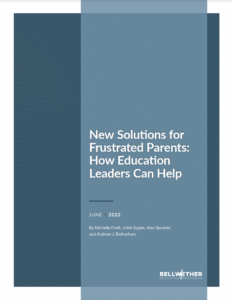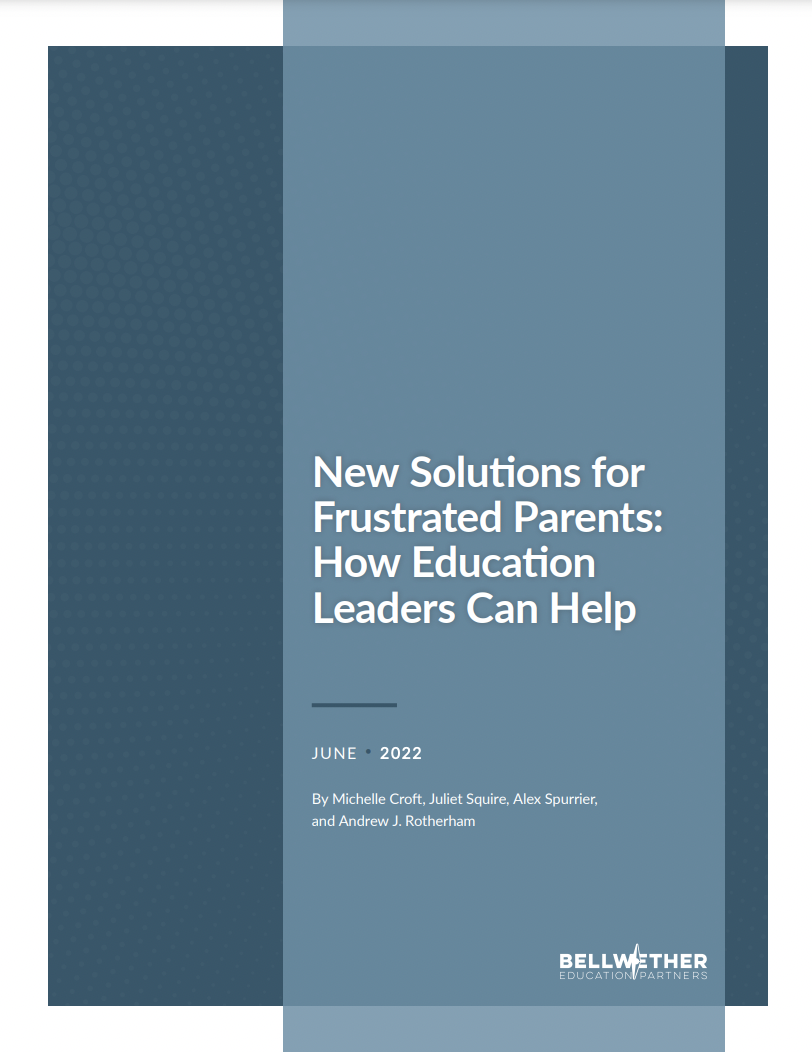 Several colleagues and I have a new brief on parents and options as we shift to this new stage of the pandemic: New Solutions for Frustrated Parents: How Education Leaders Can Help.
Several colleagues and I have a new brief on parents and options as we shift to this new stage of the pandemic: New Solutions for Frustrated Parents: How Education Leaders Can Help.
We focus on a few things, working with parents to understand their needs and wants, increasing the educational options available, making sure parents are informed about them, and knocking down access barriers. You can read it here. This is part of a broader project including the Parent Perception Barometer and 2021’s Overlooked. We also have other materials if this issue is of interest to you, please reach out.
Also from Bellwether, last week we published a report about widespread systemic impact. Music here if you like.
Yesterday, we talked about the lack of a positive politics of improvement in K-12 education. Here’s Peter Coy in The Times about Bridge Academies, they operate in Kenya,
When I asked for examples of similar arrangements in the United States, where a nonprofit organization supports rigorous public schools for low-income students, NewGlobe cited the KIPP Foundation, which runs 270 charter schools across the country. NewGlobe also cited Success Academy, a network of charter schools in New York City serving mostly low-income students in one of the nation’s most segregated school systems. “Success students in the city’s poorest communities outperformed kids in the wealthiest suburbs,” says an article in the summer 2022 edition of Education Next. “If the network were a single school, it would rank in the top 1 percent of the state’s 3,560 schools in math and the top 3 percent in English.” Eva Moskowitz, the founder of Success Academy, describes her approach as “joyful rigor.”
What do KIPP, Success, and Bridge have in common? Well, one thing is they have all run into a buzzsaw of opposition from the teachers unions, particularly the AFT. These schools may not be for you, but they clearly are changing the life choices of some students. There are certainly things to learn from them for policy and practice. And yet…
What I’m reading:
Like everyone else, this article from The Intercept.
